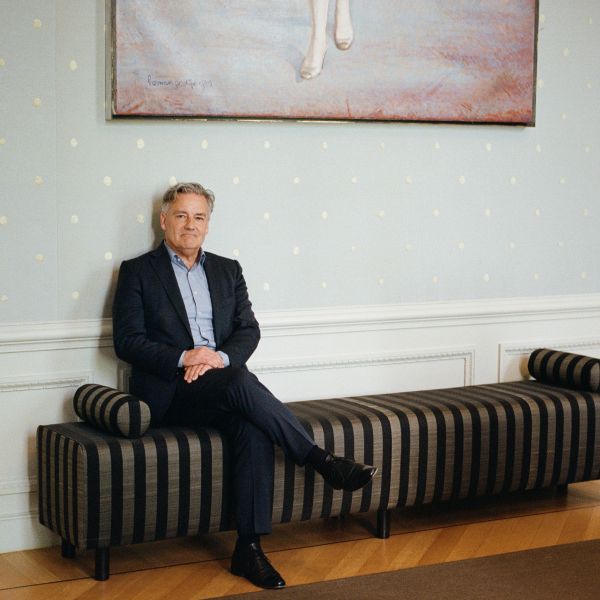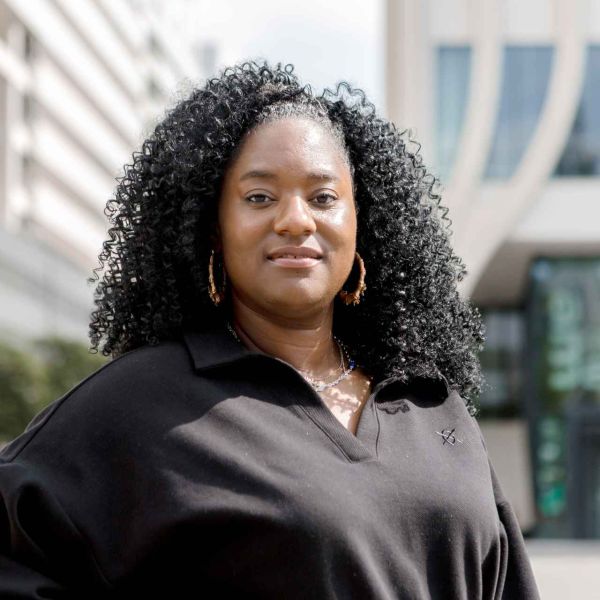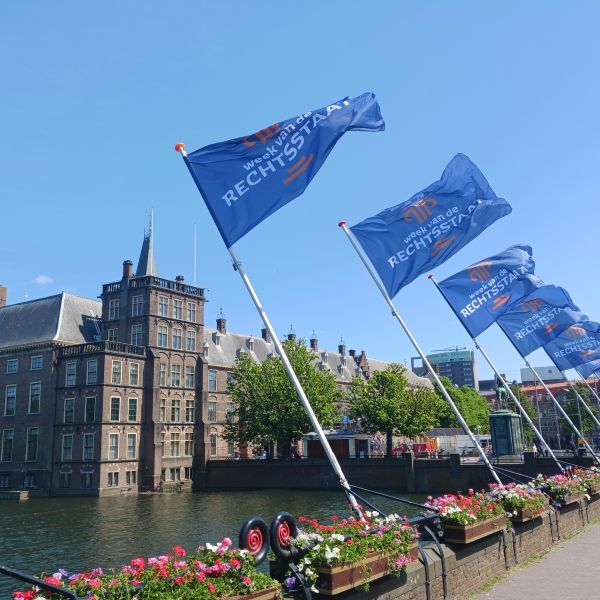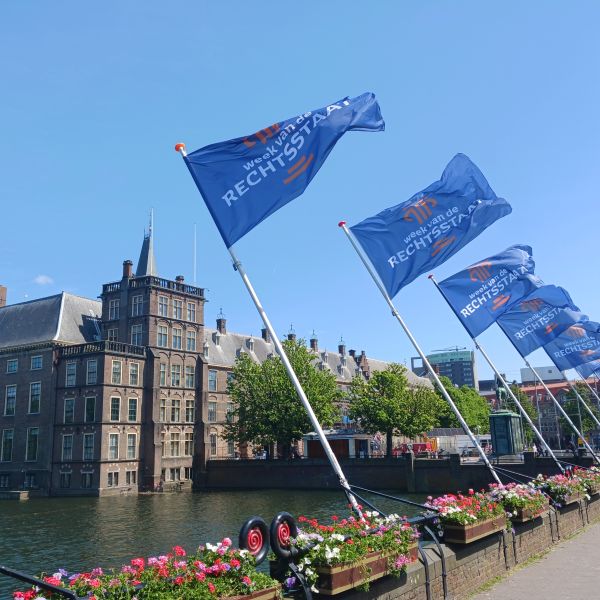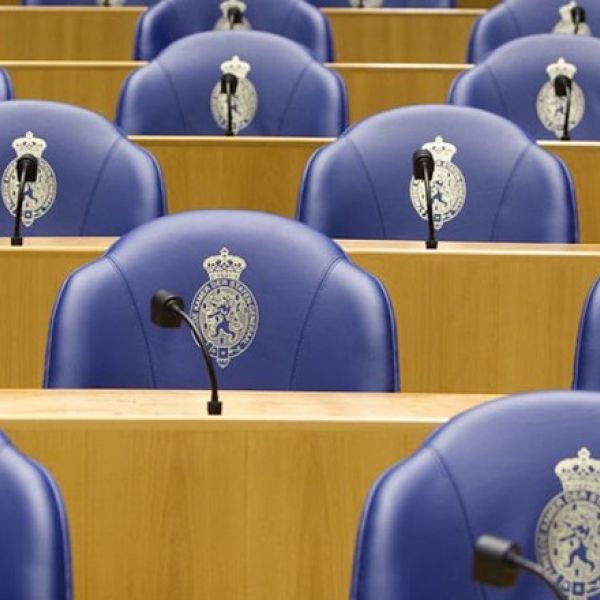Neighborhood agent Chiel Lentz: "People feel so comfortable with us that we sometimes have to remind them that we are also the police."

On the occasion of the Week of the Rule of Law and Hague Justice Week, we present from Just Peace a trio of stories in which we let different people speak. All working within different layers of our rule of law. The Hague is of course the legal capital and the international city of peace and justice, but what actually happens behind the walls of those buildings and what drives the people who work there? For the second story in this series, we speak with Chiel Lentz, neighborhood cop in The Hague's Vogelwijk neighborhood.
Photography and text by Loretta Monique
You've been a neighborhood cop for 11 years, the last three of which have been in the Bird District. What makes the work of a neighborhood cop so different from that of other police officers?
"When there is an emergency, you call 911. Then a police car comes and those officers then go and put band-aids, as we call them. For example, when an argument between a man and a woman gets out of hand. They are taken apart, told not to do that again, and then the officers leave. This is very valuable and necessary, but it does not solve the underlying problem. That's what we're here for. We don't just look at that one fight, we look at the bigger picture. Are these quarrels more frequent? Are there children in the home? Could a counseling program be something?
"When someone is an addict and causing noise pollution as a result, it doesn't make much sense to tell 'someone to be quiet' and then leave."
When someone is an addict and causing noise pollution as a result, it doesn't make much sense to tell "someone to be quiet" and then leave. Then you're there at the door three times in one day. We primarily look at the underlying issues and monitor someone's progress or regression. If we notice that that addicted person has gone into psychosis, we have staff at the police station that we can deploy for support. Together we then see if someone needs to be hospitalized or if medication can possibly be rearranged.
I sometimes compare our work with a bicycle wheel: we are the tires and the partners we work with are the spokes. Think of shopkeepers, sports clubs, aid agencies and community centers. I actually see myself as a kind of conduit that can quickly refer residents to one of these partners with whom we work closely."

Neighborhood agents of the Bird District: Chiel Lentz (left) & Steven van der Gaag (right).
How do you go about your work?
"As neighborhood police officers, we are basically 'taking temperatures in the neighborhood' all day. In other words, we are constantly sounding out whether there is unrest. In this way you are really the thermometer of the neighborhood and that makes you see situations coming much sooner and so you can better anticipate them. We signal a lot and are on top of everything. Sometimes situations arise and then people say 'we never saw this coming.' That actually rarely happens to us."
"Even people who have committed more serious crimes say, 'I don't want to have anything to do with the police, but if the neighborhood cop calls that I have to come, I'll come.'"
Do you notice that the step is smaller for people to come to you, rather than to the police station?
"It is often a big step for people to walk into a police station or stop a police car. Neighborhood officers make interaction with the police accessible. Sometimes so easily accessible that people separate the work of a neighborhood policeman from that of the police. Then people say 'but you don't really work for the police, do you?' and suddenly start sharing very sensitive information about crimes they have committed. I always give people a choice: either you have to stop telling your story now, or I am forced to point out your mistakes and do something with the information you share. Residents feel so free with us, but of course we remain police officers. That also makes our position kind of special. Even people who have committed more serious crimes say, "I don't want anything to do with the police. But if the neighborhood cop calls that I have to come, I just come."
How important is the presence of a neighborhood agent in neighborhoods?
"I think it's important to be a neighborhood cop for all residents, not just those experiencing problems. People have a lot of questions about our work, and as a district agent you are actually a kind of signboard. It is your job to explain why the police act in certain ways. People are quick to say "the police should act harder" or "the police should have shot," but there are a lot of guidelines we have to follow. We are not cowboys! For example, there is a fair amount of ignorance about the police's monopoly on violence. I believe that if you remove certain uncertainties from people, there is much more understanding.
"There are a lot of guidelines we have to follow. We're not cowboys!"
A good example of the importance of our presence is the process surrounding the winter shelter for the homeless that was stationed in the Vogel neighborhood. Before the municipality proceeds to action, they first ask me the question, "What will the neighborhood think of this? Then I start talking to residents and try to get a sense of what the general mood is. At moments like that, you have to explain very well to residents what exactly is the intention of such a plan, for example by means of an information evening. By involving people in this way, you notice that the peace is maintained and the neighborhood goes along more easily with the realization of such a shelter. The residents ended up participating by donating clothes and doing volunteer work."
How does the work of a neighborhood police officer contribute to peace and justice, for example, on a national scale?
"I think our mere presence in the neighborhood contributes to that sense of peace and justice. Because we are the thermometer of the neighborhood, it stays quieter. The Netherlands is one of the few countries that uses neighborhood agents. If unrest arises or threatens to arise somewhere, first the neighborhood policemen are sent out to "take temperatures. We then go out into the streets and see what's going on. Because we know the neighborhood like the back of our hand, we can see certain unrest coming from miles away and pass it on earlier to, for example, national units within the police. Because they know about certain things at an early stage, they can better anticipate. On a more local level, we are also present a lot at high schools, for example, to keep good contact with the young people in the neighborhood."
"Young people come to us with questions, usually 'for a friend'"
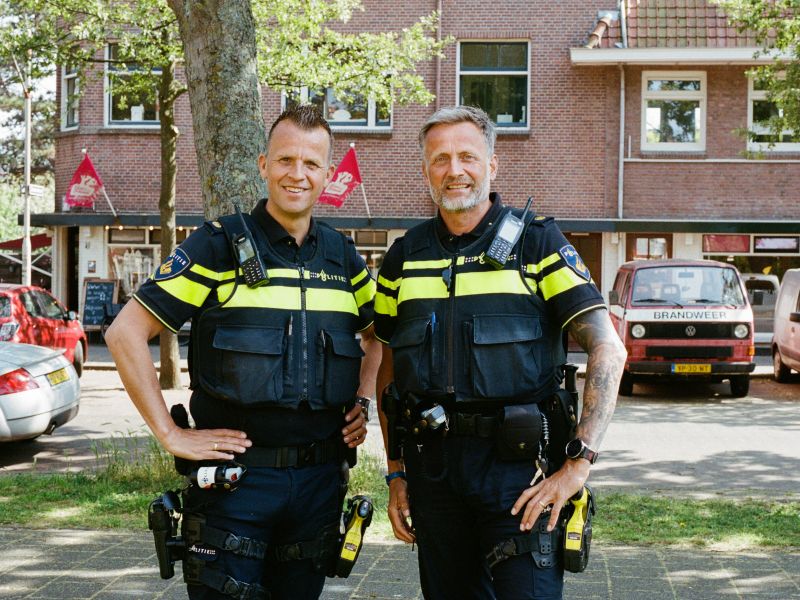
Neighborhood agents of the Bird District: Steven van der Gaag (left) & Chiel Lentz (right).
How do young people experience your presence at such a school?
"At first you notice that our presence causes unrest at such a school. Students find it exciting and think: there are police, what is going on? But after a while they get used to it. Every month I go with a youth worker to the high school in my district and we hold a kind of consultation hour during the big break to give information. We bring gadgets and display them in the auditorium. Young people then come to us with questions, usually "for a friend. This also makes the police a little more approachable for them. Because of the informal atmosphere we create, young people regularly share things that are actually just criminal offenses. We then always have to weigh up what we do with that."
What is the most important thing people should know about the work of a neighborhood police officer?
"That we are there for everyone, not just residents with problems. Approaching the police could hardly be more approachable. We are also a kind of information point for people, when they have questions or are worried about something. We are good at referring people to other agencies, should we not be able to solve it. In addition, we are open 365 days a year, 24/7. The municipality is closing, counters are closing, but we keep working. I think that contributes to a sense of security."


